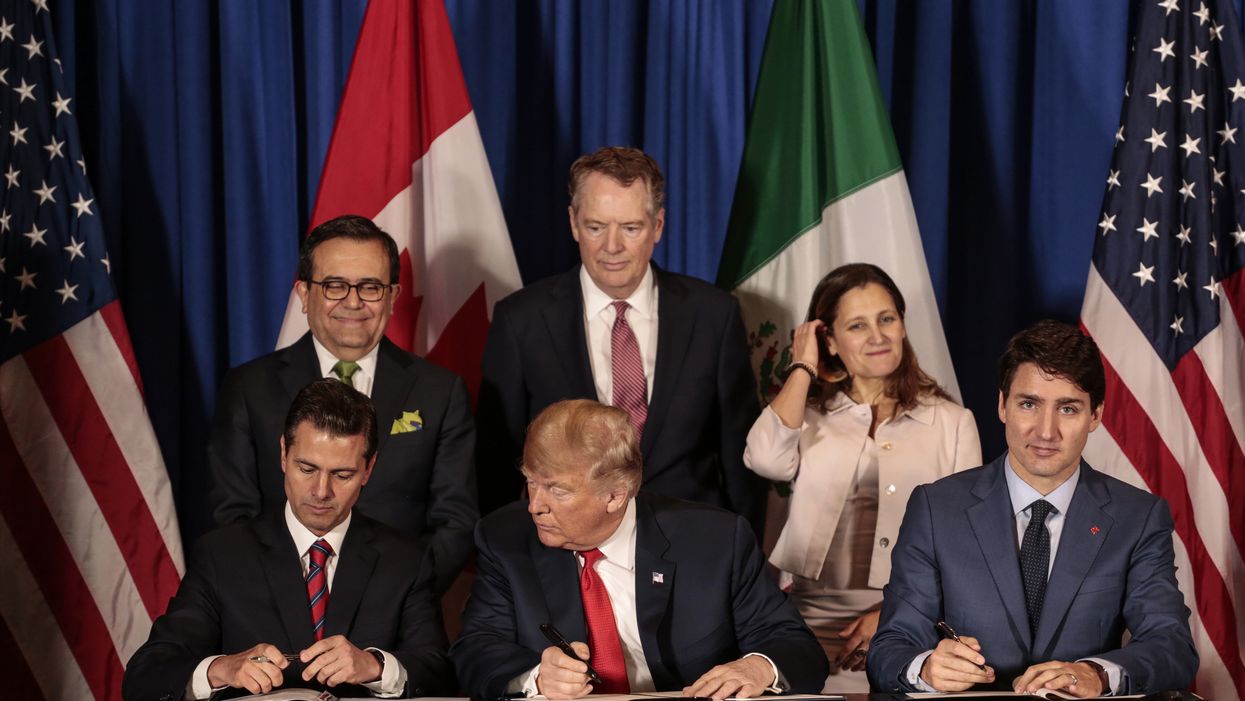
arah Pabst/Bloomberg via Getty Images

The deal is expected to add 176,000 jobs and raise the GDP by 0.35 percent
A new report from the United States International Trade Commission (ITC) shows that the new U.S.-Mexico-Canada Agreement (USMCA) will improve the U.S. economy more than NAFTA would have, but only slightly.
On Thursday, when most news outlets were busy digesting the Mueller report, the ITC released a 379 page report detailing its assessment of the USMCA. President Donald Trump, Canadian Prime Minister Justin Trudeau, and former-Mexican President Enrique Peña Nieto signed the USMCA trade deal on November 30, 2018. It is still waiting for congressional approval before it can become law.
According to this report, the USMCA will add 176,000 jobs over five years, and increase the GDP by $68.2 billion (0.35 percent). U.S. exports to and imports from Canada would both increase by $19.1 billion, while those to and from Mexico would increase by $14.2 billion and $12.4 billion, respectively. The report concluded that the "USMCA would likely have a positive impact on U.S. trade, both with USMCA partners and with the rest of the world."
Notably, while President Donald Trump repeatedly cited trade deficits with both countries as part of his reason for scrapping NAFTA and starting fresh, these projections would see the U.S. trade deficit with Canada remaining the same, while the deficit with Mexico, which was $81.5 billion last year, would be barely touched (it's actually increased by nearly $3 billion in the first two months of 2019 compared to the same period last year, already more than the $2.2 billion reduction suggested by the ITC estimates).
The ITC also concluded that while the USMCA would add roughly 28,000 jobs in the auto industry, it would also cause the price of cars to rise slightly for consumers. This is due largely to the USMCA's requirement that 75 percent of each vehicle be made in North America in order for it to avoid tariffs, and a $16 minimum wage for auto workers. Under NAFTA, at least 62.5 percent of a vehicle had to be made in North America.
The Office of the US Trade Representative put out its own, more optimistic, analysis the same day estimating that the number of auto jobs would be closer to 76,000.